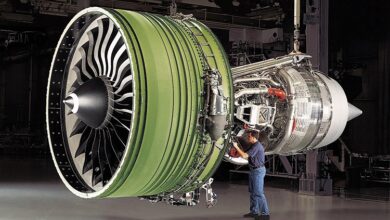Top 10 Machine Learning Frameworks in 2024
Introduction
Machine learning frameworks play a pivotal role in app development. With the rapid evolution of technology, the landscape of machine learning frameworks is constantly changing. In this blog post, we will explore the top 10 machine learning frameworks of 2024, examining their features, capabilities, and contributions to the field of artificial intelligence.
TensorFlow
TensorFlow, developed by Google, continues to be one of the most popular and widely used machine learning frameworks in 2024. Its flexibility, scalability, and extensive ecosystem make it a preferred choice for both research and production applications. TensorFlow supports a variety of neural network architectures and provides tools for distributed computing, making it suitable for large-scale projects.
PyTorch
PyTorch has gained significant traction in recent years due to its intuitive interface and dynamic computation graph. Developed by Facebook’s AI Research Lab (FAIR), PyTorch is known for its ease of use, particularly in building and training neural networks. Its eager execution model allows for seamless debugging and prototyping, making it a favorite among researchers and practitioners alike.
Keras
Keras, originally developed as a high-level neural networks API, has become an integral part of TensorFlow since its integration in TensorFlow 2.0. With its user-friendly interface and modular design, Keras simplifies the process of building and experimenting with deep learning models. Its compatibility with both TensorFlow and other backend engines makes it a versatile choice for machine learning projects.
Microsoft Cognitive Toolkit (CNTK)
The Microsoft Cognitive Toolkit, or CNTK, is a powerful deep-learning framework known for its efficiency and scalability. Developed by Microsoft, CNTK offers excellent performance, particularly in scenarios involving large-scale distributed training. Its support for multiple programming languages and flexible architecture makes it suitable for a wide range of applications, from computer vision to natural language processing.
Apache Spark
Apache Spark is a unified analytics engine for big data processing, which includes machine learning as one of its core components. Spark MLlib provides scalable implementations of common machine learning algorithms, allowing users to perform distributed training and inference on large datasets. With its support for multiple programming languages and seamless integration with existing big data tools, Spark remains a popular choice for data-driven applications.
Google Cloud Platform (GCP)
Google Cloud Platform offers a comprehensive suite of machine learning services and tools, including TensorFlow Enterprise and AutoML. TensorFlow Enterprise provides optimized versions of TensorFlow for deployment in production environments, while AutoML enables users to build custom machine learning models without extensive expertise in data science. With its robust infrastructure and managed services, GCP simplifies the process of developing and deploying machine learning applications in the cloud.
Chainer
Chainer is a flexible and intuitive deep-learning framework developed by Preferred Networks. Its dynamic computation graph allows for greater flexibility in model construction and training, making it well-suited for research and experimentation. Chainer’s transparent framework design and native support for dynamic graphs make it a popular choice for researchers and developers seeking flexibility and control in their deep learning projects.
Theano
Theano, although no longer actively maintained, remains a significant contribution to the machine learning community. Developed by the Montreal Institute for Learning Algorithms (MILA), Theano pioneered the concept of symbolic computation graphs for deep learning. While its popularity has waned in recent years, Theano’s influence can still be seen in many modern deep-learning frameworks.
Apache Mahout
Apache Mahout is an open-source machine-learning library built on top of Apache Hadoop and Apache Spark. It provides scalable implementations of collaborative filtering, clustering, and classification algorithms, making it suitable for big data analytics and recommendation systems. While not as widely used as some other frameworks, Apache Mahout remains a valuable tool for distributed machine learning on large datasets.
H2O
H2O is an open-source machine-learning platform that simplifies the process of building and deploying machine-learning models at scale. Its user-friendly interface and support for various algorithms make it accessible to data scientists and developers alike. H2O’s distributed architecture and integration with popular programming languages make it well-suited for building predictive analytics applications in production environments.
Closing Lines: Machine Learning Frameworks
In conclusion, the top 10 machine learning frameworks of 2024 offer a diverse range of features and capabilities to meet the evolving needs of the artificial intelligence community. Whether you’re a researcher exploring new algorithms or a developer building real-world applications, these frameworks provide the tools and resources necessary to push the boundaries of machine learning and AI. By staying abreast of the latest developments in these frameworks, you can harness the power of machine learning to drive innovation and create intelligent solutions for the future.
Get more related articles:



